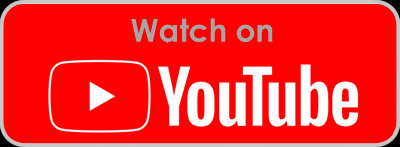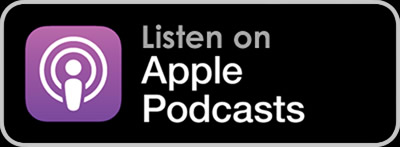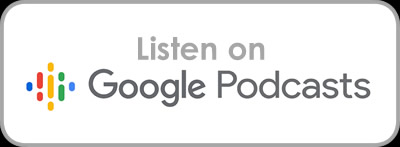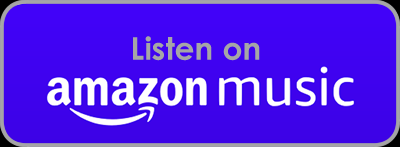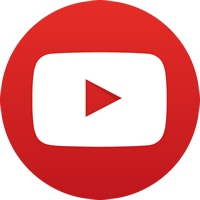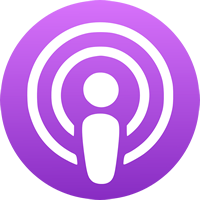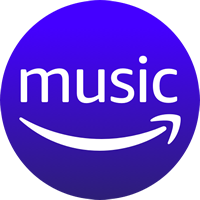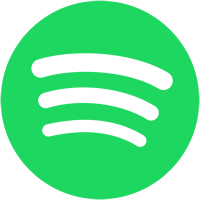Have you been testing and tweaking your landing pages in a continuous yet barren attempt to improve your website conversion rates?
Maybe it’s time to stop changing button colours – and to start truly understanding who your visitors are, and what they want.
My guest on Digital Marketing Radio episode 257 is a lady who’s taught conversion optimization on hundreds of stages including Google, MozCon and SearchLove.
She and her team provide conversion optimization services for high-growth companies using customer-centric methods, emotional targeting strategies and data-driven analysis.
Welcome to DMR – the Founder of GetUplift – Talia Wolf.
Key questions covered in this episode:
How has conversion rate optimization improved over the past few years?
What mistakes do you see many businesses making when they’re trying to optimize their conversion rates?
How do you improve your conversion rates in a customer-centric manner?
What are emotional targeting strategies and how can that help to improve your conversion rates?
So how do you get to know your audience – what audience research do you recommend?
What questions should you ask your target audience in the research process?
What trends are you seeing at the moment in terms of calls-to-action?
How does conversion rate optimization fit in with other digital marketing activities, for example retargeting?
Secret Software:
“Page Edit” Chrome extension
Magical Marketer:
Sonia Thompson & Ross Simmonds
Audio recording:
Full transcript:
David Bain
Digital Marketing Radio Episode 257: how to use emotional targeting strategies to enhance your website conversion rates
Bot
Digital Marketing Radio with David Bain
David Bain
I’m David Bain. And this is Digital Marketing Radio, the podcast and YouTube show for in-house agency and entrepreneurial marketers who wants to stay on top of the races, tools, tactics and trends I shared on DMR by today’s modern marketing masters. No, have you been testing and tweaking your landing pages in a continuous yet battered attempt to improve your website conversion rates? Maybe it’s time to stop changing button colours and to start truly understanding who your visitors are and what they want. My guest on Digital Marketing Radio Episode 257 is a lady who’s taught conversion optimization on hundreds of stages including Google mozcon, and search love. She and her team provide conversion optimization services for high growth companies using customer centric methods, and most no targeting strategies and data driven analysis. Welcome to DMR the founder of get uplift, Talia Wolf.
Talia Wolf
Hello, hello. Hi. Thank you for having me.
David Bain
Great to have you on Talia. Oh, well, you can find Talia over at GetUplift.co. So Talia, how has conversion rate optimization improved over the past few years?
Talia Wolf
Oh, that’s a really good question. I think people I mean, most companies are now starting to see that conversion optimization is an integral part of the business. In order to drive more conversions, more revenues, you just have to be testing you have to be doing the right research and trying to optimise the assets that you have whether if it’s your landing pages, your website, your email marketing, all in order to increase your conversions.
David Bain
So what mistakes Do you see many businesses making when they’re trying to optimise their conversion rates?
Talia Wolf
You know, I think that there is a rush, you know, into create many different tools and software in order to increase conversions, whether it’s testing platforms or efforts, research platforms. But at the end of the day, you cannot switch out the actual human side of conversion optimization. So great tools out there. Today, we use a wide variety of tools for AV testing, for research, that the end of the day, what really matters is the actual human side of understanding people’s minds understanding their intent and roadblocks or challenges. And software, unfortunately, can’t really do that. So yeah,
David Bain
so is relying on software, probably one of the biggest mistakes that businesses tend to make when they’re trying to focus on improving their conversion rate optimization.
Talia Wolf
I think it’s a little deeper than that. I think when it comes to conversion optimization, we all know that we want to improve our conversions. And we want to get more demo requests. We want to get more leads or sales. But we don’t necessarily know how to do it. There’s a lot of software out there. There’s a lot of analytics out there. So it’s quite easy to know where the problem is, it’s quite easy to launch a test because now we have these great editors and everything that’s needed. The missing piece is knowing what to actually change what will actually make the difference that you’re hoping for on the page. And that is trickier and cannot be done with software. I think that not enough companies actually invest in the most important part of conversion optimization, uncovering the problems uncovering why these things are happening, and finding the right framework to fixing them and understanding or knowing Hey, this is the change that will make the difference and increase conversions.
David Bain
So what practically does customer centricity within conversion rate optimization mean? What What does a company need to be doing to be more customer centric and therefore really enhance their their their conversion rates?
Talia Wolf
Well, I think the first thing to understand is that conversion optimization isn’t about changing buttons, or trying to change an element on the page and hoping you’re actually increased conversions. But real conversion optimization is about solving people’s problems. It’s about understanding the people behind the screen and being customer centric. When you know who your customer is, what their roadblocks are, their challenges, the pains that they are dealing with, and you know, their desired outcomes and what they’re hoping to achieve. It’s far easier to understand what copy what design In what wireframe, what you x, everything exactly what needs to be on the page in order to convert people. So first you have to make it about people, you have to make it about them and understand who they are, what they’re looking for. And then you’ll be able to know what to create in order to increase conversions. So
David Bain
how do you really get to know your customer? What are some of the more effective ways to do that? Do you try and have focus groups? For example? Do you try and form customers after being a customer for X number of months to get them at the right point to try and capture people right at the point of transaction? To ask them some kind of question?
Talia Wolf
Yeah, so there’s quite a lot of ways to do it. And it really depends on the company itself. But our go to approach is by conducting surveys, so surveys for website visitors who haven’t converted yet, and we’re trying to figure out their pains and their challenges, why they’re on the website, what they’re looking for. And once again, this isn’t about asking them about, you know, the features that they’re looking for the pricing that they’re worried about, but really understanding the pains that they’re trying to solve the jobs that they’re trying to get done. The other thing that we do is a customer survey, which reaches out to the most loyal customers and people who have been your customers for quite a while to understand what are the biggest values that you deliver, again, less about a product less about what you’re selling the offer, but more about their experience, their, how they’re experiencing it, the value that they see. And we then merge the two. So we also do customer interviews, we’ll do something called review mining or social listening, which is essentially combing the web for different interactions and communications and in different communities, to see what people are talking about what they’re complaining about what they’re missing, what they’ve tried, that hasn’t worked, and all of this together, helps us understand people a lot better, and then be able to say, Okay, this is the copy people need to see on the page. This is how people need to feel when they land on the page. And this is how we’re going to reach it.
David Bain
I love your use of phrenology. They’re following us the kind of things that people are really passionate about, within an industry the kind of pains that they have about the industry as well. And that’s miles away from obviously, considering website buttons, as you’re you’re talking about earlier on as well. So if you’re looking at conducting a great survey, does it ideally have to be face to face? Or in some kind of conversation? Can it be solely online? If it’s online, is there an ideal length for that to ensure that customers actually get to the end of the survey?
Talia Wolf
Yeah, so usually what we’ll do with surveys is we’ll use really simple tools like hot jar, for example, that have surveys built into the product already. So we’ll set up 564 questions depending on what we’re trying to ask and they will pop up on the website and people will be able to fill them in immediately. The goal is to ask the questions that you really care about, and you’re going to be able to read more into the answers. What we usually do is after we review and analyse and categorise all the answers from the survey, so if this is from the visitor survey that we used hot jar for, then we may be able to that Sorry, excuse me, then we’ll create the customer survey, ask all those questions, analyse those results. And that will usually send out via email or use a tool like type form. And then we’ll reach out to people and say, You answered you gave some really interesting answers in the survey and the customer survey, would you be able to get on a call with us for 20 minutes, 1520 minutes, and we’ll have a zoom call with them, or any kind of just video call to just ask them additional questions, see how they speak, we’re going to pay attention to the words that they’re using to describe things. Because at the end of the day, you want to use your customers voice, their words and the way they describe things on the website. And that’s going to help you increase conversions. So it’s important to have a good mixture of asking so you know, sending out surveys and getting those text based surveys but also speaking to people seeing their reactions and actually hearing their voice and how they describe things.
David Bain
And should a business try and serve everyone or is it more important to actually try and define who the ideal customers are perhaps the customers that stay for longer that spend more with you and just focus in on serving them and talking to them.
Talia Wolf
It depends on the goal of the survey. If you are trying to increase retention, then yes, you would probably go to your customers who have been using your software or your tool for a very long time. And you’re going to try and figure that out. If you want to figure out what was the immediate trigger that made people convert, you’re going to want to ask the people that just converted, what was that final thing that convinced them to sign up? So really depends on the goal of the survey. But in generally, I would say, survey everyone survey as much as possible, and have the surveys everywhere and survey every point of the funnel.
David Bain
And I love when you said follow up with people give interesting answers and have zoom calls with them as well to actually go deeper. I think many marketers are afraid of doing that or don’t want to do that don’t find that interesting. And I guess that’s where the gold is. Yeah, I
Talia Wolf
mean, one of the good things about interviews is that the rule is you’re not really supposed to be speaking. So I know it’s called an interview. But it’s more you sitting there and going, huh, why? Why, okay, you’re basically trying to just not put words in their mouths and just listen to them. So you ask a question, and then you just listen to it. So if you’re camera shy, or you’re worried about how people will respond, I can tell you that by now I’ve conducted hundreds of interviews, people are far more likely to actually like happy to jump on an interview call with you than you would expect. And you don’t actually have to do most of the talking. In fact, 90% of the time, you’re supposed to be quiet. So that helps.
David Bain
So who’s the best person the best best job role to jump on that kind of call? Is it marketers or type of marketer? Or is it indeed a customer service representative or someone else in the business?
Talia Wolf
We, on our end, it’s the copywriter. And the reason we do that is because we’ll collect all the data and we’ll analyse all the data. So sometimes two or three of us would analyse the same survey at the same time, and then compare our results to make sure that we’re still reaching the same conclusions. And the copywriter is the person who then has to turn all of these insights into high converting copy. So usually, it’s a copywriter, or a strategist, someone who understands customers. It could be your UX designer, it could be a researcher, if you’re a big company, if you’re a small company, CEO, the founder, the marketer, anyone who can get on a call, hit record, and just listen to people will be great.
David Bain
Great. And in terms of taking data from that conversation? Is it worthwhile attempting to give people scores or add in answers through some kind of piece of software that you have yourself? Or is it simply a case of having a real emotional feel for that particular customer, and then using that field to better determine how to position your web pages in the future?
Talia Wolf
Yeah, unfortunately, it’s combing through spreadsheets. Basically, there are tools out there, even good ones that help you analyse surveys, but in my experience, the best ones, and the best results. And the best insights that we’ve gotten have been from literally just going through hundreds of lines in spreadsheets, and getting a feel and seeing identifying repeating themes. What we do is we’ll categorise different answers. And you’ll start seeing the same answer over and over again, you’ll start seeing themes of pains of desired outcomes of challenges of things that maybe have prevented them to have converting or how would they recommend you to friends, things that keep repeating themselves. And the more you immerse yourself into that data, the more of an understanding you get. And I think it’s kind of like a superpower. Because once you have that, you will be the most knowledgeable person in the company. So anyone on product in, in support in marketing and sales, everyone has to come to you because you’re the person with that knowledge, and they should be coming to you. And they should be asking to get all of that data and insights that they can optimise everything in the business because ultimately, conversion optimization isn’t just about the marketing aspect. It’s about optimising everything in the business, the way you improve your product, the way you improve your customer service, how you send out a product if you’re selling a commodity. There’s just so many things you can do with these insights, that it’s pure gold.
David Bain
And are you a fan of building personas from the information that you glean from surveys and the conversations that you have?
Talia Wolf
I think that I don’t call them personas cuz the way that personas are actually defined a very rigid and normal When people say personas, they kind of mean of 35 year old female works at this kind of job. For us, when we defined two or three types of prospects, or ICP, then we will define them as, here’s one person, at type of person who is experiencing these kinds of pains, these kinds of challenges. And usually, this is the kind of solution they’re looking for. And this is what they care about. This type of customer has the same roadblocks. But for them, they’re actually looking for these kinds of solutions. So it’s less about defining, you know, giving generic names to people and an age and a job title, and more about defining pains and desired outcomes, and what they would like to see on a page to combat.
David Bain
Okay, so perhaps of two other things that you mentioned there. You mentioned, review mining and social listening. So review mining, is that about looking for great and bad reviews and actually trying to reach out to those customers,
Talia Wolf
you don’t need to actually reach out to them. And that’s one of the best things. So if you’re a business that’s just getting started, and you don’t have customers to interview or you don’t have clients, you can reach out to review mining is actually the one thing anyone can do. It’s enough to go on to Amazon and find even books that are trying to solve the same things that you are doing. So for example, let’s go for the most generic example, your marketing agency, you’re just getting started, then I would go on Amazon, look for the top marketing books that are essentially attempt to solve the things that you do with your agency and comb through the reviews of all those people who read the book, what are they saying? What was missing in the book, what were they expecting to see? Why did they read the book, these are people that could be using your services that could hire you. And they’re essentially saying, I read this book, because x, y, and Zed and this is what I was missing. This is what I was looking for. And it’s the same with everything. It’s review mining, I mean, it’s called review mining, but it’s basically mining the web for conversations and reviews. So if you were to go into a Facebook group, because you have a call software, or you have a new products for coffee, and you’re you’re selling coffee beans, you could find different Facebook groups or groups on LinkedIn, or even core questions to figure out, you know, find those people who are talking about it, and understand what they’re missing, what kind of roadblocks they’re facing, and where you can fit in and fill that gap.
David Bain
Great advice. So reviews are an opportunity to look at other products and services out there and and see what they’re doing. It’s not just a case of seeing what other people are saying about your brand or your immediate competitors, it’s actually giving you an opportunity to potentially even spots gaps in the marketplace as well. And social listening, you mentioned that as well, is that some similar kind of process? social
Talia Wolf
listening is the process of going into specific. Fred’s, for example, on Twitter or on Facebook, in different communities. And really looking at different trends and what people are saying and what they’re tweeting and what they’re posting about. You can use amazing tools. Even spark Toro, which is wonderful tool if you guys haven’t heard of it, yeah. that you can use to just understand what people are saying and where and how. And it’s the socialism is really just by understanding what your prospects and people that should be buying from you or talking about and what they’re saying. And you can also use actual social media, analytics and data, even going into Facebook ads, and looking at the different targeting options and seeing who you know what groups are out there and what people are saying and when it’s really cool.
David Bain
Yeah, off to try and get Rand Fishkin on the podcast again, I interviewed right around way back in 2016. And then it was SEO in 2020. And it seems so far into the future. No, of course, we’re your past that as well. And and he’s the founder of spark Toro, so I’m sure it’ll be a very intriguing conversation again to talk to him. Just before we move on to the next section, Talia. What do marketers do with all this information? What content what copy on their website? Should they be amending? First and foremost? Should it be simply product specific pages with a view to immediate conversions? Or are there other pieces of copy pieces of content on their website that they really need to alter with ism information?
Talia Wolf
Well, ultimately, what you want to do is be able to look at Google Analytics and prioritise according to impact So you can obviously optimise your entire website according to this research. But what you want to do is identify the biggest pages, the biggest places in your funnel, that if you were to optimise them, you would get the biggest results. And sometimes it would be the homepage, a pricing page, a signup page, maybe it’s a landing page, so you prioritise by impact. And then you can use that research to write sales copy, you can use it to create a video, if needed, you can use it to create testimonials, you can use it to write really good emails, whether if it’s onboarding emails, or retention emails. So it really does depend on where the biggest ROI is going to be. Because ultimately, and this is the most important thing, the research is there to help support your decision and the tests you’re going to run. It’s not there to look good. And just say like, great, I know this now, you’re trying to use it in order to validate different hypotheses that you have, and strategies that you’re thinking about. And you use all that in order to increase your conversions. And that’s what we do all the time, looking at where the biggest leaks are in the funnel, and then using our research to fix that.
David Bain
Absolutely. Wonderful advice. So let’s segue to part two of our discussion. So it’s time for today’s thoughts in the state of digital marketing today. So starting off with SECRET SOFTWARE, so Tanya share a lesser-known martech tool with it’s bringing a lot of value at the moment and why that tool is important for you.
Talia Wolf
Well, it’s actually a Chrome extension that I’ve been using lately. It’s called page edit. It’s super simple. And it’s just really, for people that do work like mine. I am constantly showing clients and also students in our courses, different ideas and examples of stuff. And when I’m trying to show them how to optimise something, I use this extension. And what it does basically is it allows you to live edit any page on the web on the web. So essentially, you could go to once Thank you could go to Business Insider, you could go to Forbes, you could go to spark Toro, which we just mentioned. Or you can go to Moz and edit their homepage with this. And then screenshot and you’ve got an example of like, Hey, this is how I would optimise your headline, this is what I would use in order to convince people to sign up. This is the copy I would use. So it’s just a really cool and easy Chrome extension. I used to use the inspect and then start you know, this is really cool. Two minutes. And it looks really good when you’re sending that kind of examples to clients and students.
David Bain
Yeah, I was gonna say I used to use the inspect tool as well. And many SEO are comfortable about doing things like that. But visual marketers, different content marketers copywriters are, are not comfortable with that. So you need a tool that anyone can use. And that’s a great use case scenario that you shared as well, to actually use it for pitching as well. And to show this is what I would change about your website absolutely love it. Let’s move on from something you currently use to something that you’re going to use. So that is NEXT ON THE LIST. So what’s one marketing activity or tool that you haven’t tried yet, but you want to test soon.
Talia Wolf
So my next tool that I’m going to be using and I’m literally starting to plan this right now is video, ask I don’t know if you’ve heard of it. It’s a tool by typeform. Who I love. And basically what it is, is interactive videos. It’s kind of like choose your own destiny on your website. So you the way I’m going to use it on my website, for example is when you would land on it, I would ask you if you’ve come to learn on how to learn how to increase your own marketing skills and you want to do it yourself. Or if you’d like to hire us, if you you click on a button and it sends you to the right link. So it’s really cool. It’s like a bit interactive video, I can ask you multiple questions you can write back to me in the box, or you can just click on buttons. It’s so cool. I’ve been seeing so many different use cases of it. And I’m really looking forward to testing it.
David Bain
That sounds great. I mean, I’ve certainly heard of typeform. But I haven’t heard of video asked for them. I definitely get to check that one out as well. It’s great hearing things that I haven’t heard of before. And they actually I’m going to show my age here It reminded me of playing a spectrum game back in the 80s as a kid, and they had this programme, Lord of the Rings or the hobbit or something like that, and used to change the outcome of the programme. Yes by text. Not Not Not my video, but it was always a fun thing to do at the time. Yes. Let’s move on to this or that route. So this is the quick response round 10 quick questions, Just 2 rules here. Try not to think about the answer too much. And you’re only allowed to say the word both on one occasion, so use it wisely. Are you ready?
Unknown Speaker
Yes.
David Bain
Tick Tock or Twitter. On Twitter, Facebook or LinkedIn, Facebook, YouTube or podcast, traffic or leads, leads, paid search or SEO, SEO, ads or influencers, ads, Google ads or Facebook ads, Facebook ads, email marketing or chat marketing, email marketing, Mar tech stack all in one platform all in one and one to one or scale.
One to one because the one to one conversations, but I was probably more surprised to do. We chose YouTube or podcast as your booth. And that was going quite early with that. But you managed to continue. So why was the YouTuber podcast both?
Talia Wolf
Because I really value both them. I’m been doing both and I’m seeing great results from both. So I’m like still on the fence on that. So I’m like both and I’ll let you know
David Bain
in a year. And is that both for yourself? Or are you doing things like appearing mostly as a guest on other people’s podcasts? Or do you really love and recommend that the brands do their own podcast on YouTube? Sure. Yeah, so
Talia Wolf
I really am doing both. We’re doing some of it for ourselves. We have I have a podcast with Ross Simmons. And I also do different videos from my YouTube channel. But we’re also i’m also coming on as guests, you know, as a guest on different podcasts and YouTube videos. And I’m enjoying it very much. And I’m seeing some great results from it.
David Bain
Superb and you attempt to measure the results from it. Or it’s just a case of if you hear that someone has heard of you as a result of doing that, that that’s that’s enough volume.
Talia Wolf
No, no, measure everything. There’s an optimizer, I have to measure everything. Yeah, I’m I’m trying to measure every single thing. We’re like, I’m constantly looking at YouTube results to see what’s going on. And the traffic that YouTube’s driving to us to the website, also looking at the traffic that the podcast is driving, or if it’s driving Facebook, signups because we have a community for it. So I’m constantly looking at different metrics to identify if we’re getting what we need.
David Bain
So what’s the best call to action from a podcast?
Talia Wolf
you asking for a friend. I, you know, again, really depends on your goal. I think that when you’re just getting started, probably asking people to rate you is a really good call to action. But what we actually started with was the Facebook group just because we wanted to actually be able to measure Who are the people who are following us who are listening to us and be able to create content for them. And through the Facebook group, we ask questions, and we kind of create all these conversations. Later on, I would definitely say that you can use your podcast to sell. So it really depends on where you are at the beginning, we’re just getting started or further along and have a big enough audience to start selling to.
David Bain
It’s interesting when everyone uses content for different purposes. And I guess as long as you know, the purpose that you’re trying to achieve as a result of publishing the content that you’re publishing, then, then that’s great. So let’s move on to the $10,000 question. If I were to give you $10,000 and you had to spend it over the next few days in a single thing to grow your business, what would you spend it on? And how would you measure success?
Talia Wolf
I’m actually gonna say video, I think I would probably spend it on video, like a really good studio, a really good editor, and just spend a whole day in that studio recording video after video after video. And then using that to just, you know, basically distribute it everywhere, on my website, on social media on different platforms. And kind of then later on, repurpose it. So for me, creating content is one of the biggest ways that I grow my authority that we get traffic that we get leads. So I would definitely if I had that I would definitely spend up on creating content and videos
David Bain
on any particular type of videos or you find out for instance, answering defining questions, typical questions that your target audience would want to ask and then answering those questions in form of video or would you produce a different form of video?
Talia Wolf
Yeah, so I’ve actually tried different things. Sometimes I do the this is the questions like a question that I get asked a lot and here’s the answer to it. But one of my most successful things is actually a four part five part video course. So each video is three, four minutes and essentially teaching something over a week and releasing a video every day. So the last one that I It was about building landing pages. And every day, I covered a different topic for three to four minutes on how to create landing pages, how to define your audience how to write, copy, how to use social proof, how to choose images, and that was very successful. So I think that for me, at least, the tutorial aspect of it is quite successful.
David Bain
That’s That’s great advice. And in terms of how you use that content, would you ever put a gate in front of that content and actually ask people to opt in and give people you’re shaking your head here for audio listeners?
Talia Wolf
know, I, what I do is, I use all my video content, I turn it into blog posts, I turn it into social media posts, the thing, the only stuff that I have it’s gated or specific, really long guides that I have or worksheets. So we have like the Complete Guide to psychological triggers and how to use them. That’s one of our biggest lead magnets as you call them. And that’s gated, or our landing page guide or email marketing course. But I don’t get any content other than the ones that I’m really trying just get signups for.
David Bain
Right? Well, to finish off, let’s shift the focus to someone else who deserves it. So that is our MAGICAL MARKETER. So who’s an up-and coming marketer that you’d like to give a shout out to? What can we learn from them? And where can we find them? Doesn’t have to be up and coming? Different people have different definitions of up and coming I guess as long as it’s not some Seth Godin or something like that. That’d be good. No,
Talia Wolf
no, it’s up good. Um, I actually have a few but Okay, so up and coming will be Sonia Thompson. I think she is absolutely incredible. She is actually she teaches diversity in marketing. And she has really, really good content on how to reach new audiences, diverse audiences how to speak to people that you’re not, you may not think you can serve or are your target audience. She also actually shows you what happens when you’re not speaking to them and ignoring these people. So I think it’s she’s really someone that you should pay attention to. She did a wonderful keynote at call to action conference last year, or was it two years ago? When was the last time we actually got on stage? And yeah, she’s fantastic. Phenomenal.
David Bain
And did you allude to the fact that there would be another marketer that you would recommend that perhaps is a bit more famous?
Talia Wolf
I don’t know. I mean, Ross Simmons, he’s my podcast partner, but I don’t know if you know him. He is absolutely hands down the best content marketer for B2B companies. So he talks all that, like he has so many great actions, actionable tips and advice for B2B companies for agencies or freelancers on content creation and distribution. And he sends out a weekly email where he basically dissect the biggest companies and brands in the world and explained how they do what they do and why it works. And it’s brilliant. So I’d highly recommend taking a look at him and learning as much as possible.
David Bain
Superb, the name rings a bell, so I was certainly see, I do know how much lovitt superb stuff. This was Episode 257, or Digital Marketing Radio where Tony wolf from get uplift shared specific advice on doing things like serving customers to understand their pains, looking at other industry challenges to actually understand what you should be doing yourself as a business. Reach out to people as well, after you survey them, who gave interesting answers and see why they gave those interesting answers dig deeper, and constantly ask why why why why did you give that answer? Don’t talk much when you’re having those conversations with them and perhaps don’t have a marketer on the call either or have a copywriter or someone else like that, who’s not necessarily going to try and look for direct marketing answers. Look for repeated themes. look at things like review mining, and social listening as well for research wonderful research opportunities for your content, your SECRET SOFTWARE wands page edit, which is a Chrome extension. Your NEXT ON THE LIST was video asked by type form and your MAGICAL MARKETER slash s. Sonia is Thompson who teaches diversity and marketing and Ross Simmons Who’s your podcast? partner so all those links are gonna be in the show notes at Digital Marketing radio.com. Talia what’s the best social platform for someone to follow you and say Hi.
Talia Wolf
For bubbly, Twitter, I would say I guess. But yeah, you can find me on my website, Twitter. Instagram,
David Bain
Facebook a lot superbe Okay, well I’ll include the link links to that and your website of course know the resources that you mentioned in the in the show notes at Digital Marketing radio.com I have been your host David Bain. You can also find me producing podcasts and YouTube shows for B2B brands over at Casting cred.com until we meet again, stay hungry, stay foolish, and stay subscribed. Aloha
Bot
Digital Marketing radio.com Digital Marketing Radio, Digital Marketing, Radio, Digital Marketing, Radio, Digital Marketing radio.com


